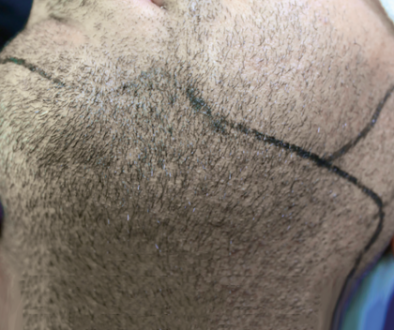Can Platelet Rich Plasma (PRP) Increase Hair Growth from Hair Transplant Surgery?
This insightful information was posted on our hair restoration forum by Dr. Timothy Carman of La Jolla, CA, who is recommended on the Hair Transplant Network.
Have you heard of the Platelet rich plasma (PRP)? I read a post on our hair loss forum back in 2005 but there weren’t too many replies. I am scheduled for a hair transplant next month, and the doctor is recommending this. Any feedback would be greatly appreciated.
Basically, a small amount (50cc) of your blood is taken before surgery. The platelets, which are part of your blood and help with healing of wounds, are separated to form a solution called platelet rich plasma. The follicular unit grafts are bathed in this PRP before being implanted. The PRP is also injected in the scar and recipient sites.
The main advantages quoted from their website are:
- to enhance donor site wound healing
- to decrease the incidence of infection
- to reduce donor scarring
- to increase donor scar tensile strength
- to enhance recipient site healing (which should increase growth)
- to be utilized as an effective treatment protocol in severe cases of wound dehiscence or infection.
The only disadvantage apart from the pain from the needles is an extra cost between $500-$1000.
It seems that this procedure had been used for over a decade in plastic surgery. It just gradually started to get into the field of hair restoration.

The main use for these agents is in the area where hair flaps are created, which is generally not a feature of most of today’s hair restoration procedures. As from the article cited:
“The potential advantages of the use of such substances include prevention of hematoma, reduction in surgical time, elimination of the need for drains, reduction of tension on flaps, and shorter recovery times. These 20 cosmetic surgery cases involving the creation of skin flaps demonstrate that autologous fibrin glue is effective in sealing capillary beds during the surgery and thereby easily controlling bleeding. The control of such bleeding improves the outcome of such surgery as it reduces the amount of postsurgical swelling. Additionally, there are cost benefits that can be achieved from the reduction or elimination in the use of drains and dressings, as well as decreased postoperative complications. The most common of these complications following cosmetic surgical procedures involving the creation of surgical flaps is hematoma formation, often requiring surgical re-exploration. Apart from the increased risk, inconvenience, and distress which it engenders to the patient, re-exploration is extremely costly to all parties involved. The use of autologous fibrin glue and platelet gel should reduce the incidence of this complication significantly, which in and of itself should lead to significant cost savings. Furthermore, the improvement in wound healing can help lead to shorter recovery with earlier discharge for patients undergoing procedures on an inpatient basis.”
Again, while these agents (PRP and fibrin glue) can control bleeding, this usually is not an issue in routine , appropriately carried out hair transplant procedures. Without these agents, your surgeon should be able to meet all the “goals” you list above:
- Donor site healing in a well approximated closure that is not under undue tension should not need “improving”.
- Infection in hair transplant surgery is already a quite rare phenomena.
- See #1
- I doubt this one.
- Recipient sites should normally heal well.
- This is considered a post-op complication, not an intra-operative one necessitating the above agents.
Bottom line, my opinion: this is a lot of money for which there is little indication or gain in traditional state of the art hair restoration surgeries.
For more information, see the following article: http://www.drman.com/articles_details_11_the_use_of_autologous_platelet-rich_plasma.html
Dr. Timothy Carman
—
Bill
Associate Publisher/Editor
Technorati Tags: Platelet rich plasma, PRP, hair loss, hair transplant, follicular unit grafts, hair restoration, hair flaps, Donor site




March 15, 2010 @ 12:31 pm
Sunil,
PRP is still relatively experimental as a hair loss treatment. While there’s been some promising preliminary results, there’s no proof yet that PRP is a viable hair loss treatment.
In my opinion, consider proven and effective treatments such as Propecia (men only) and Rogaine.
Best wishes,
Bill Seemiller
Managing Publisher of this Community
March 14, 2010 @ 7:04 am
CAN PRP HAIR TREATMENT INCREASE THE GROWTH AND DENISTY.
August 6, 2009 @ 7:45 pm
For us to grow as a community we must be open to new frontiers. It appears any suggestion out of line with the convention way of hair restoration always generate immediate opposition on this forum even before the opposer look and study the new idea. We should be innovative and welcoming new ideas for upward critical review. Whatever reasonable cost is involve to improve things the way they are is entirely JUSTIFIED.